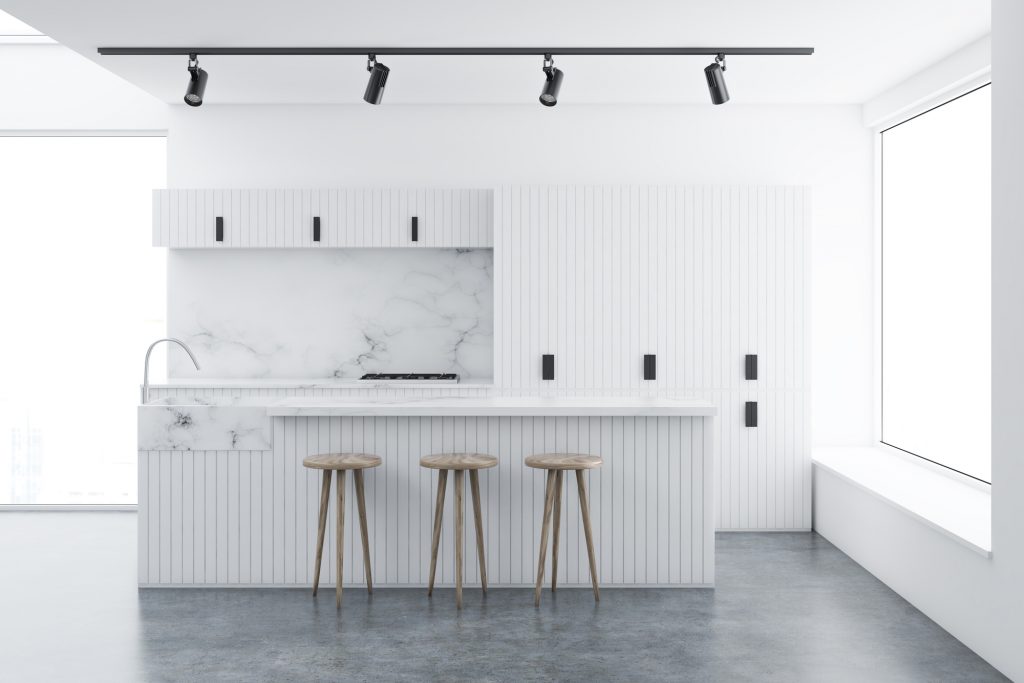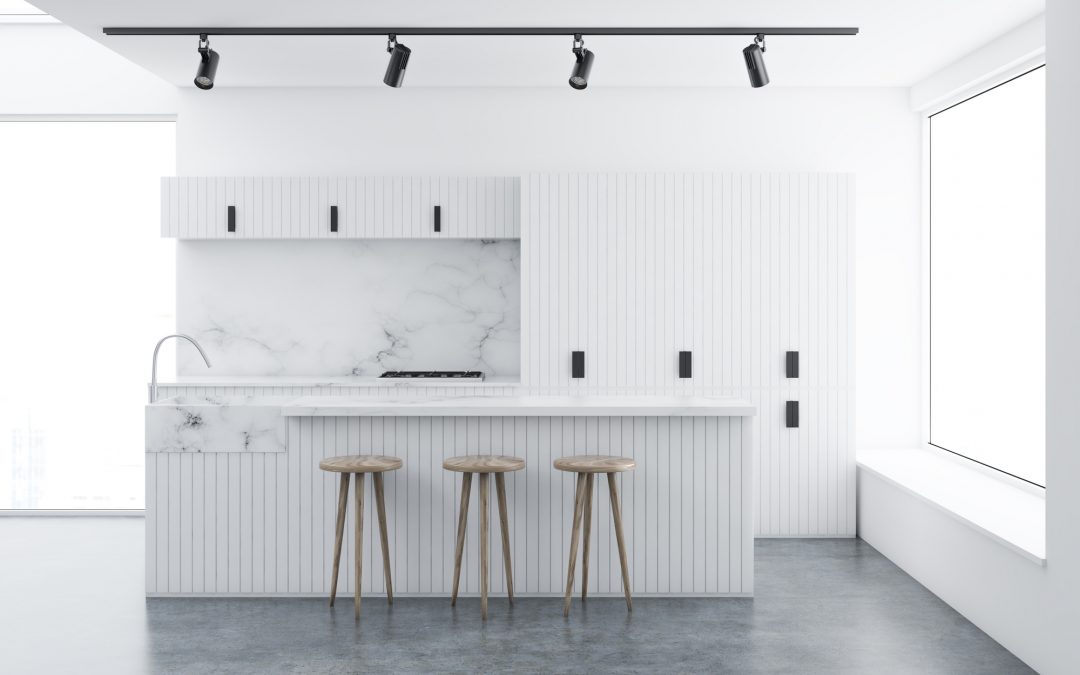Exploring the Best Choices for Your Commercial Kitchen Flooring
Are you a business owner looking for the best floor options for your commercial kitchen flooring? When it comes to selecting the right kind of flooring, there are many factors to consider. This includes safety, cost-effectiveness, durability, and cleaning ease. Whether you’re outfitting a brand new kitchen or renovating an existing one, choosing the right type of flooring can make all the difference in creating an effective workspace that will withstand regular foot traffic and heavy use from all types of appliances. In this blog post, we explore some of our top picks when it comes to finding the perfect solution for your commercial kitchen’s unique needs.
Benefits of Flooring for Your Commercial Kitchen
The correct flooring in your commercial kitchen can offer a host of benefits. For starters, it can ensure safety by providing slip resistance, an essential factor considering the inevitable spills in such environments. Additionally, it offers excellent durability and can withstand the high foot traffic and heavy equipment typically found in commercial kitchens, leading to longevity and cost savings in the long term. Good flooring also simplifies cleaning and maintenance, thereby promoting a hygienic kitchen that adheres to food safety regulations.
Moreover, quality flooring options come in a range of materials, each with its own unique advantages. For instance, non-slip vinyl flooring provides superior traction, while epoxy coatings offer exceptional resistance to stains and chemicals. By carefully considering your specific needs and preferences, you can select a flooring solution that perfectly aligns with your kitchen requirements.
Furthermore, aesthetically attractive flooring can enhance the overall ambiance of your kitchen, contributing to a more productive and pleasant working environment. Whether you opt for a sleek and modern design or a classic and timeless look, the right flooring can create a visually appealing space that complements your culinary creations.
Investing in the correct flooring for your commercial kitchen is crucial for several reasons. It ensures safety, simplifies maintenance, withstands heavy use, and contributes to the overall aesthetics and productivity of your kitchen. By choosing the right flooring material and design, you can create a highly functional and visually appealing space that sets the foundation for a successful culinary operation.
Types of Flooring to Consider in Your Commercial Kitchen
There are several types of flooring to consider when outfitting your commercial kitchen:
- Vinyl: Vinyl is an affordable, water-resistant option that is easy to clean and maintain. It comes in a variety of colors and styles, allowing you to tailor the look of your kitchen to your liking. Moreover, its non-slip surface makes it a safe choice for high-traffic areas.
- Epoxy Flooring: Epoxy flooring is known for its durability and resistance to stains, heat, and heavy traffic. It’s also low maintenance and easy to clean, making it an excellent choice for busy kitchens.
- Quarry Tile: Quarry tile is a popular choice for commercial kitchens due to its high durability and non-slip surface. However, it requires regular sealing to prevent water absorption and maintain its appearance.
- Concrete: Concrete is a versatile flooring option, with the ability to be stained or polished for a more elegant look. It’s incredibly durable and can withstand heavy kitchen equipment. However, it may require professional installation to ensure a smooth and level surface.
- Rubber: Rubber flooring is both durable and comfortable underfoot, reducing the strain on staff who are on their feet for extended periods. It is also slip-resistant and easy to clean, making it a viable option for commercial kitchens.
Each of these options has its own unique strengths, so consider your specific kitchen needs and budget when choosing your flooring.

Commercial Kitchen Flooring
Choosing the Right Materials for Your Commercial Kitchen Floors
When selecting materials for your commercial kitchen floors, consider the nature of your operations and the specific demands of your space. Here are some factors to keep in mind:
- Durability: A commercial kitchen is a high-traffic area that needs to withstand constant use. Choose a flooring material that can bear the weight of heavy kitchen appliances and resist wear from daily foot traffic.
- Ease of Cleaning: Hygiene is paramount in a kitchen setting. Therefore, opt for flooring materials that are easy to clean and won’t harbor bacteria or other microbes.
- Slip Resistance: Kitchen floors often get wet and greasy, posing a slipping hazard. Select a flooring material with a high slip resistance to prevent accidents and ensure staff safety.
- Cost: Evaluate your budget before making a decision. While you may be tempted to save money by choosing a less expensive option, remember that long-term maintenance costs can add up. It might be more cost-effective to invest in a higher-priced, durable option that requires less frequent replacement.
- Aesthetics: Lastly, while functionality is essential, it’s also important to consider the visual appeal of your kitchen. Choose a flooring material that matches your kitchen’s aesthetic and enhances its overall appeal.
By keeping these factors in mind, you can make an informed decision about the best flooring material for your commercial kitchen.
How to Prepare the Area for Installing Flooring in Your Commercial Kitchen
Before installing flooring in your commercial kitchen, thorough preparation of the area is essential to ensure the longevity and performance of your chosen materials.
- Clear the Area: Start by removing all kitchen equipment, furniture, and other movable objects from the area. This not only prevents damage to your items but also allows for a clean, unobstructed workspace.
- Clean the Surface: Next, clean the existing floor thoroughly. Remove any debris, oil, or grease that could interfere with the new flooring’s adhesion. If necessary, use a degreasing agent for stubborn spots.
- Repair Damages: Inspect the floor for any cracks, holes, or uneven areas. These should be repaired before the installation of the new flooring, as they can lead to premature wear and tear. Use a suitable filler for minor damages or consult a professional for significant repairs.
- Level the Surface: A level surface is vital for the proper installation of kitchen flooring. Use a leveling compound if necessary to ensure the floor is completely flat.
- Allow the Floor to Dry: Once cleaned and repaired, allow the floor to dry thoroughly. Any residual moisture can affect the adhesion of the new flooring.
- Check Door Clearance: Finally, check that the doors will still operate correctly with the additional height of the new flooring. Adjust the doors if necessary.
By diligently preparing your commercial kitchen for new flooring, you can lay the groundwork for a successful and long-lasting installation.
Cost-Effective Flooring Options for Your Commercial Kitchen
If budget constraints are a concern while choosing your commercial kitchen flooring company, consider the following cost-effective options that do not compromise on quality or functionality:
- Laminate: Laminate flooring is both economical and versatile. It’s available in a wide range of designs and colors, and it’s relatively easy to install. However, it’s not as durable as other options, and it can be prone to warping in moist environments.
- Ceramic Tiles: Ceramic tiles are cost effective and come in various styles. These tiles are durable, easy to clean, and resistant to water and heat. However, they can be slippery when wet and might crack under heavy loads.
- Linoleum: Linoleum is affordable, durable, and comes in a wide variety of colors and patterns. It’s also easy to clean, making it ideal for kitchens. However, it’s not as durable as other options and may need replacement more frequently.
- Vinyl Composite Tile (VCT): VCT is a budget-friendly choice popular in commercial settings. It’s easy to install and maintain, and it offers good durability. However, it needs to be sealed to protect it from water and stains.
Remember, the cheapest option isn’t always the most cost-effective in the long run. Consider factors such as longevity, maintenance costs, and the flooring’s impact on your staff’s comfort and safety. Ultimately, the best choice will balance upfront costs with benefits over time.

